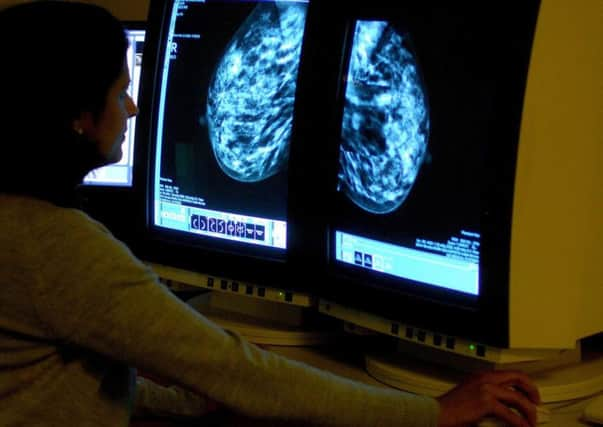Hope for breast cancer sufferers as breakthrough drug approved


In new draft guidance, the National Institute for Health and Care Excellence (Nice) has approved palbociclib and ribociclib for widespread use in the health service in England.
The drugs have been shown to slow down advanced cancer for at least 10 months and can delay the need for chemotherapy – giving women the chance to live a normal life for longer.
Advertisement
Hide AdAdvertisement
Hide AdThe two drugs work in a similar way and are a new class of cancer treatment, the Institute of Cancer Research (ICR), London, said.
It said the development of the drugs was one of the “most important breakthroughs” for women with advanced cancer in the last two decades.
The new agreement from Nice comes after it negotiated price deals for the medication. It had previously rejected palbociclib because its cost was too high in relation to its clinical effectiveness.
In new draft guidance, Nice said that women with oestrogen receptor positive breast cancer who were diagnosed after the disease had begun to spread will be eligible for palbociclib – also known as Ibrance and manufactured by Pfizer.
Advertisement
Hide AdAdvertisement
Hide AdWomen who meet these criteria, and who have undergone the menopause, will be eligible for ribociclib – also known as Kisqali, created by Novartis.
Both drugs are given once daily and need to be used in combination with an aromatase inhibitor.
Aromatase inhibitors work by blocking the production of the hormone oestrogen, stopping its ability to fuel some breast cancers. Palbociclib and ribociclib are the first of a new type of drug that slows the progression of cancer by inhibiting two proteins called CDK 4 and 6.
It is estimated that around 8,000 people in England would be eligible for treatment with either palbociclib or ribociclib each year.
Advertisement
Hide AdAdvertisement
Hide AdProfessor Carole Longson, director of the centre for health technology evaluation at Nice, said: “The committee heard from the patient experts that delaying the progression of their cancer for as long as possible and being able to continue with normal activities, including working, is valued very highly by patients and their families.”
Baroness Delyth Morgan, chief executive at the charity Breast Cancer Now, said: “This is a life-changing and long-awaited step forward in treatment for many patients with metastatic breast cancer, potentially offering thousands of women the closest thing they would have to a cure in their lifetime. Palbociclib and ribociclib represent an exciting new generation of medicines.”